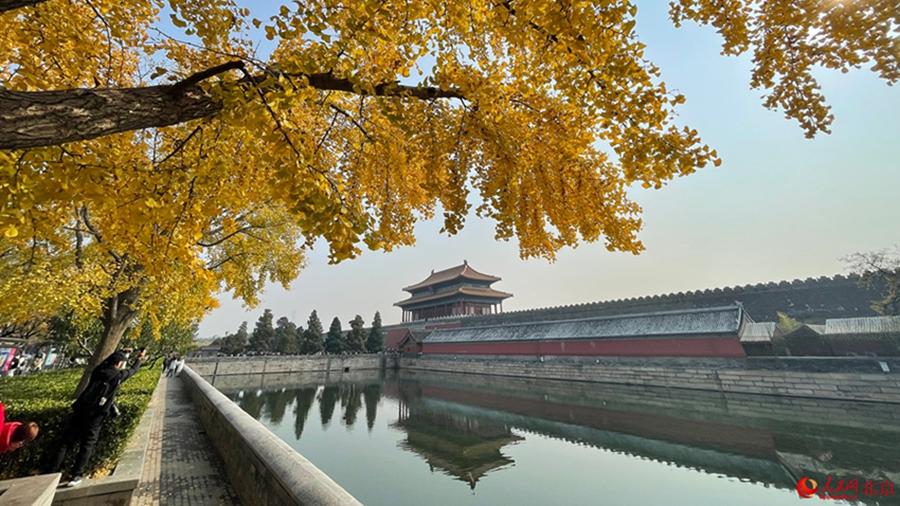China, Italy aim to nurture modern Marco Polos for civilizational exchange
BEIJING, Nov. 11 (Xinhua) -- China and Italy, two major education powers, are deepening collaboration in the realm of higher education, a move that is aimed at nurturing modern Marco Polos to carry forward civilizational exchange and mutual learning.
At a dialogue for Chinese and Italian university rectors held in Beijing over the weekend, China announced plans to boost youth exchanges between the two countries. Universities from both sides also signed agreements to jointly build campuses and interdisciplinary research centers.
Huai Jinpeng, China's education minister, said the country will offer over 100 fully funded exchange opportunities to the 22 participating Italian universities -- an effort to advance a high-level initiative China proposed earlier this year to double the scale of European youth exchanges in the country.
"In contemporary times, the missions for higher education are not limited to creating and communicating knowledge; they transcend to the historic level of inheriting and innovating human civilizations," Huai said.
Located on the opposite ends of the ancient Silk Road, China and Italy boast rich and long-standing civilizations. More than seven centuries ago, Italian explorer Marco Polo's travels served as an important bridge to connect the Chinese and Western civilizations. He remains a symbol of cross-cultural exchanges even today.
Education links the two countries, too. Italy is widely believed to be the birthplace of modern universities. China, on the other hand, has a sophisticated educational system developed through centuries that has nurtured numerous literati, scholars and administrators at both the central and local levels.
"Marco Polo's legacy teaches us that only through respect for each other's cultures and openness can we promote innovation and progress toward a better world," Tiziana Lippiello, board member of the Conference of Italian University Rectors, said.
Over the past two decades, educational exchanges and cooperation between China and Italy have played a significant role in enhancing mutual understanding between the two peoples, officials said.
China is now the largest source country of international students in Italy, while Italy ranks among the top five European countries in terms of the number of students studying in China.
Over the years, Chinese and Italian universities have set up 45 collaborative higher-education institutions and programs, on top of nine research labs with a focus on cutting-edge and foundational disciplines, as well as high-tech engineering fields.
In 2016, Italy incorporated the Chinese language into its national education system. A number of primary and middle schools in Italy have opened Chinese language and culture courses.
Dozens of institutions dedicated to teaching Chinese culture have also been established.
"We hope that the Italian language and culture will also become more widely spread in China, promoting understanding of our rich cultural heritage and facilitating mutual exchange," said Lippiello, also rector of the Ca' Foscari University of Venice, who studied in China in the 1980s.
University representatives at the event, which was jointly organized by China's Ministry of Education and the Italian Ministry of University and Research, also highlighted the importance of higher-education cooperation in response to common challenges for humanity like climate change and sustainable development.
Giovanni Molari, rector of the University of Bologna, said his university has been cooperating closely with its Chinese counterparts in areas like AI, robotic automation and pharmaceuticals.
"I'm sure such dialogues can help us achieve common development and meet global challenges," Molari said.
Matteo Lorito, rector of the University of Naples Federico II, said he expects more collaboration between the universities of Italy and China on ecology, digital transformation and food science.
"Cooperation with China is indispensable," Lorito said. "I hope that the students we cultivate can become the Marco Polo of modern times, possessing a critical and innovative spirit, as well as a sense of responsibility toward the international community."
Photos
Related Stories
- China to offer over 100 exchange spots to Italian universities
- China's top legislator meets with Italian president in Beijing
- Chinese premier meets with Italian president in Beijing
- Italian president lays wreath at Monument to People's Heroes in Beijing
- Chinese, Italian presidents meet representatives from cultural conference, university dialogue
Copyright © 2024 People's Daily Online. All Rights Reserved.









